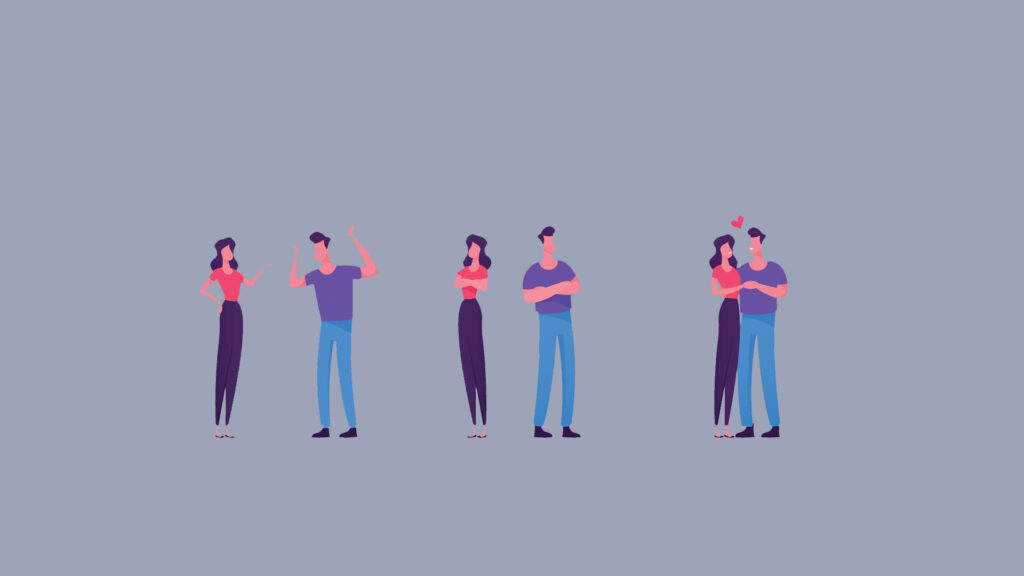Do you feel like you’re in an unhappy relationship but can’t leave? You’re not alone. Millions of people find themselves in this situation every year. It can be very difficult to break free from an unhappy relationship. Especially if you don’t understand why you’re stuck in it.
In this article, we will explore the different types of unhappy relationships and the reasons that trap victims within them. We will also provide self-help tips and strategies for getting out of an unhappy relationship and recovering from the experience.
Contents
- 1 Understanding Unhappy Relationship
- 2 Parenting And Unhappy Relationship
- 3 Getting Trapped In Unhappy Relationship
- 4 Living With Unhappy Relationship
- 4.1 Impact of Unhappy Relationship on Personal Life
- 4.2 Impact of Unhappy Relationship on Social Life
- 4.3 Impact of Unhappy Relationship on Work-Life
- 4.4 Impact of Unhappy Relationship on Mental Health
- 4.5 Impact of Unhappy Relationship on Physical Health
- 4.6 Impact of Unhappy Relationship on Spiritual Health
- 5 Repairing Unhappy Relationship
- 6 Breaking Free From Unhappy Relationship
- 7 Talking To Professional
- 8 Hearing From Experts On Unhappy Relationship
- 9 Conclusion
- 10 A Word From Therapy Mantra
Understanding Unhappy Relationship
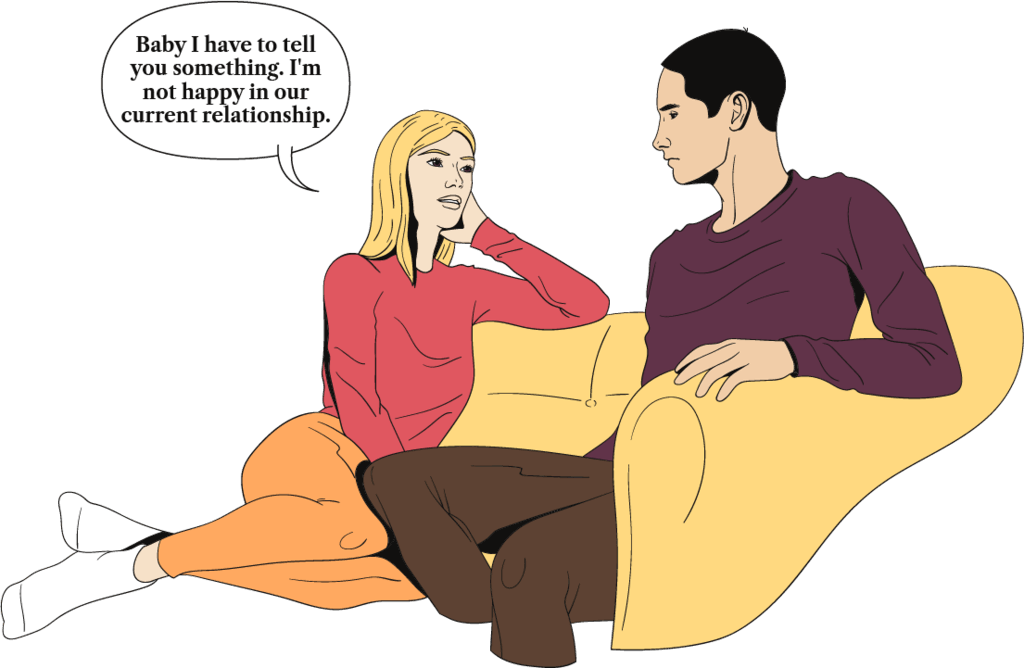
An unhappy relationship is one in which neither partner feels happy or satisfied. One or both partners could be feeling trapped and the unhealthy dynamic of the relationship may seem insurmountable to change. It can be extremely difficult for victims in an unhappy relationship to leave. Because they do not understand why they are staying, what types of dissatisfaction exist within their relationships, and what impact their relationship has on other areas of their life.
Types Of Unhappy Relationships
There are many different types of unhappy relationships, including the following:
Abusive Relationships
In abusive relationships, one partner uses violence or intimidation tactics to control and manipulate the other. This can include physical abuse, emotional abuse, sexual abuse, financial abuse, and spiritual abuse.
Codependent Relationships
In codependent relationships, one person is extremely dependent on another for survival. The codependent partner will often do anything to please the other person, even if it means sacrificing their own needs and desires.
Narcissistic Relationships
In narcissistic relationships, one partner is completely focused on themselves and their own needs. The narcissist will often put their partner down, make them feel inferior, and withhold love and support to maintain a sense of power and control.
Passive-Aggressive Relationships
In a passive-aggressive relationship, one partner will act out by being aggressive towards the other in a subtle way that is hard to detect. This can often take the form of a “silent treatment” in which one partner refuses to speak or acknowledge their significant other for days, weeks, months, and even years at a time.
Manipulative Relationships
In a manipulative relationship, one partner will seek to get what they want from the other by manipulating their feelings or actions in some way through deception, guilt-tripping, gaslighting techniques such as denying reality, or lying outright about events that happened to confuse them. The goal is usually to make the other person do what they want them to.
Signs of Unhappy Relationship
Signs of an unhappy relationship include the following:
- Feelings of dissatisfaction or unhappiness.
- Feeling alone and unsupported by your significant other or others close to you.
- Feel guilty if you try to spend some “me” time with yourself or go out without asking permission from your partner.
- Having to walk on eggshells around your partner for fear of angering them and triggering an outburst or some other form of abuse.
- Feel like you’re trapped in a situation that is making you miserable, but not knowing how to get out of it or what will happen if you do so.
- Notice that your relationship is harming other areas of your life such as work, social activities, or mental and physical health.
- Feel like you’re not good enough, pretty enough, skinny enough, successful enough, etc., to be loved by your partner and that they are only with you out of convenience or pity.
- Feeling like nothing you do for your partner makes them happy anymore and that no matter what happens in life, they are always complaining about being unhappy with something else (e.g., work).
- Dealing with constant criticism from the other person or feeling judged on everything you say or do all day long every single day, makes it hard to enjoy anything anymore because there is always someone waiting around the corner ready and willing to tell you why they don’t like whatever it was that just made you happy for a moment in time.
Parenting And Unhappy Relationship
Your children are also affected by being in an unhappy relationship. They may be afraid to tell you when something is wrong because they don’t want their parents fighting or hurting each other any more than necessary.
Children who witness domestic violence at home often experience emotional trauma as well, which can lead to problems with schoolwork and behavior later on down the road if they don’t get help early enough in life.
Getting Trapped In Unhappy Relationship
There are many reasons why people stay in unhappy relationships. Some of the most common ones include:
Lack of support from family and friends
Some victims do not have the support of their family and friends who might be encouraging them to stay in an unhappy relationship.
Fear of hurting their partner
Some victims are afraid of hurting their partner if they leave because they know it will be difficult for them to accept that things have come to an end.
Lack of self-confidence or self-esteem
Victims who struggle with a lack of confidence and low self-esteem may feel like they are better off staying in an unhealthy relationship rather than being on their own.
Fear of being alone
Many people are afraid to leave because they feel like there’s no other option for them. They think that if they don’t stay in the relationship, then they will be left with nothing at all and have nowhere else to go. Some victims also fear what their partner might do if they try to break free from their control.
Financial reasons
There are many victims of unhappy relationships who stay because they do not have the means to leave. They might be financially dependent on their partner, or afraid that if they break up with them then there will be consequences for their finances like losing a house or job security.
Possibility of reconciliation
Some victims stay in unhappy relationships because they hope that things will eventually get better and that their partner will change. They may believe that if they just stick it out long enough, then things will eventually go back to the way they were before.
Fear of change
Many victims have a hard time with the idea of leaving because it means going through changes in their lives, which can be scary for some people. They may fear that they won’t know how to survive on their own or find another partner who will love them as much as this one does now (even though that’s not always the case).
Fear of being judged by others
Victims who stay in unhappy relationships may also fear what people around them will think about how long this has gone on or why they haven’t left yet. They may feel like they will be judged as weak, stupid, or foolish for not being able to walk away from something that is making them so unhappy.
Living With Unhappy Relationship
Living with an unhappy relationship is not good for your health. It harms other areas of your life such as work, social activities, or mental and physical health.
Impact of Unhappy Relationship on Personal Life
When you are in an unhappy relationship, it is difficult to be happy and enjoy life. You may feel like you are constantly walking on eggshells around your partner and that you can’t do anything right. Everything you say or do is criticized, which makes it hard for you to feel good about yourself.
Impact of Unhappy Relationship on Social Life
Your social life will likely suffer when you are in an unhappy relationship. You may stop going out with your friends as much because you don’t want to be around people who might make your partner angry. Or, you may not feel like yourself anymore and have a hard time connecting with others.
Impact of Unhappy Relationship on Work-Life
Your work life may also suffer if you are in an unhappy relationship. You might have to take time off from work because of emotional distress or physical injuries caused by your partner’s abuse. This can lead to lost wages and even job loss, which will make it harder for you to pay bills and support yourself financially.
Impact of Unhappy Relationship on Mental Health
Your mental health can be affected by being in an unhappy relationship. You may feel depressed, anxious, or have low self-esteem because you are constantly being criticized and made fun of by your partner. It’s common for victims to experience these feelings while they’re still together with their abuser because they don’t want anyone else to know what’s going on at home.
Impact of Unhappy Relationship on Physical Health
Your physical health will likely suffer if you are in an unhappy relationship. You might have bruises or cuts from being attacked by your partner, as well as emotional distress which can lead to stomach problems and headaches. It’s common for victims of abuse to have poor physical health because they often don’t have the energy or motivation to take care of themselves.
Impact of Unhappy Relationship on Spiritual Health
Your spiritual health may also be affected by being in an unhappy relationship. You may feel like you are not good enough and that God is punishing you for some unknown reason. It’s common for victims of abuse to have poor spiritual health because they believe that their suffering is due to something wrong with them.
Repairing Unhappy Relationship
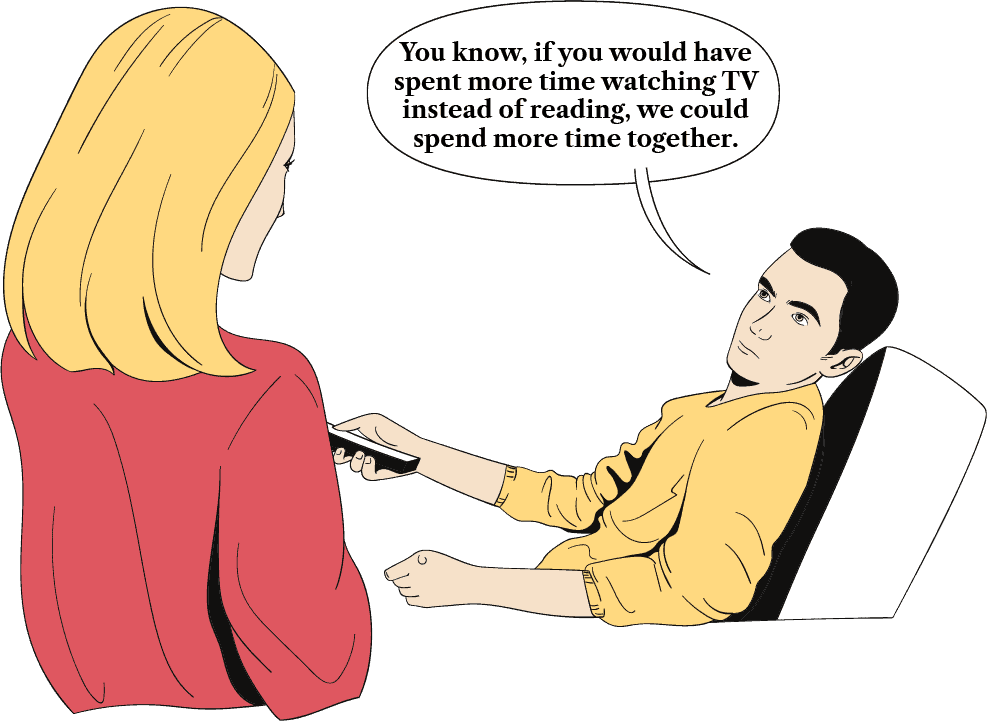
If you are in an unhappy relationship, there are things you can do to try and repair it. Such as:
- Talk to your partner about what is making you unhappy and discuss ways in which both of you could make changes so that there are no more problems between the two of you.
- Take some time apart from each other for a few weeks or even months without any contact whatsoever (including through social media). This allows space for reflection on whether or not this is really what you want. And gives both parties an opportunity to miss one another or not.
- Go on a romantic vacation together where you can reconnect without any distractions from work, family, or friends (if possible). This way it’s just the two of you focusing on each other and spending quality time together. Hopefully, it will lead to a rekindling of the love you once had.
- Seek professional help if you feel like your partner is never going to change or if things have gotten too bad between the two of you. This way, there is someone else who can offer impartial advice and support as you work through your issues.
Breaking Free From Unhappy Relationship
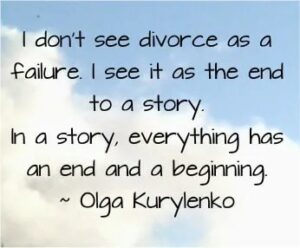
There are many reasons why people stay in unhappy relationships. Some of these include fear about leaving an abusive partner, love or affection that remains between the two individuals involved, and hope that the situation will improve.
If you are considering breaking free from an unhappy relationship, it is important to do so safely and healthily. This means that you should have a solid plan in place for what you will do once you leave your partner. Here are some steps that can help:
- Talk to someone who can help you make this decision, such as a therapist or counselor-they may even be able to provide emergency shelter services if needed.
- Create a safety plan in case of an emergency. This should include having important documents and money ready to go, as well as somewhere to go if things get bad.
- Make sure all important documents like birth certificates and social security numbers are hidden somewhere where your partner won’t find them-this includes things like photos of children too!
- Keep any keys locked up so that your partner can’t get into the house without permission-also keep any guns or weapons away from them.
NOTE: Remember that it is never too late to leave an unhappy relationship, no matter what the reason may be. You deserve to be happy and safe in your own life!
Strategies for Getting Out of Unhappy Relationships
The first step in getting out of an unhappy relationship is to decide that you want it. You’ll need some time alone with yourself, away from the other person so think about what life would be like without them there every day – will things get better or worse? Once you’ve made up your mind, here are some strategies that can help you leave:
Talk to someone close about leaving – this could be your friend or even a professional counselor who specializes in helping people get out of abusive relationships.
Make sure there is a safety plan for when things go wrong – if possible it would be a good idea to have an escape route ready so you can leave quickly if needed.
Keep a diary of everything that happens in the relationship – this will help you when it comes time to talk about what happened with someone else.
Get legal help – if you have any concerns about custody, child or spousal support, or the division of assets and debts when leaving.
Create or join a support group – so you can talk to others who are in the same situation as you and get some advice on how they handled things.
Get involved in activities – that make you happy, this can be anything from painting to hiking, as long as it brings you joy.
Take care of yourself – physically by eating healthy foods and getting enough exercise.
No Matter What Happens, You Are Not Alone
Leaving an unhappy relationship can be a scary prospect, but know that you are not alone. Many people care about you and will support you through this difficult time. If the time comes when you decide it’s not safe anymore, don’t hesitate to contact a crisis line or go directly into an emergency room for help immediately!
NOTE: You deserve to be happy and safe in your own life!
Talking To Professional
If you are experiencing any of the signs of an unhappy relationship, it might be helpful to seek out therapy. A therapist can help you understand why you are staying in the relationship and offer guidance on how to leave. They will also provide support during what can be a difficult time.
Many therapists specialize in working with people who are in abusive relationships, so finding one should not be difficult. If you have insurance, check to see if your policy covers therapy, or look for a therapist who accepts sliding scale fees.
Why Consider Therapy?
Yes, it can be difficult to talk about an unhappy relationship with a stranger. But it’s important that you do if you want help. Because a therapist counselor will be able to offer advice based on their expertise and experience working with people in similar situations as yours. Moreover, counselors work hard every day at helping clients get through these types of issues, so they know how best to support you during this difficult time.
Therapy Options
If you’re considering counseling as an option, there are many different types available. Some therapists specialize in relationships while others focus more on mental health issues like depression and anxiety.
The right therapist will be able to help you find the best solution for your particular situation. They do it by providing guidance through their knowledge base or referring out if necessary! Find one today.
Here are some therapies that may help:
Psychodynamic Therapy
This approach addresses issues from an emotional perspective. It includes exploring how past experiences affect current beliefs about yourself as well as others. The goal of psychodynamic therapy is not just to heal wounds. But also to develop insight into why they happened to prevent relapse in the future.
Cognitive Behavioral Therapy (CBT)
This type of therapy focuses on changing negative thoughts and behaviors by exploring how they connect. The goal is not only to improve symptoms but also to prevent relapse into old patterns. CBT has been proven effective in treating various mental health issues such as depression, anxiety disorders, eating disorders, substance abuse disorders, and obsessive-compulsive disorder (OCD) as well.
Dialectical Behavior Therapy (DBT)
This therapy is designed to help people who have difficulty regulating their emotions. It focuses on using problem-solving skills and mindfulness to manage difficult thoughts and feelings. DBT helps treat borderline personality disorder, eating disorders, substance abuse, and anger management issues as well.
Support Groups
These groups can be a great way to connect with others who have similar experiences. But they’re not always right for everyone. If support groups sound like something that might work well as part of your treatment plan, talk to someone at one of these organizations about their programs and services. So you know what’s available before deciding if it’s right for you:
- The National Domestic Violence Hotline (NDVH) offers a variety of support services to those affected by domestic violence, including crisis counseling and safety planning. They also have an extensive database of local programs that can provide help.
- RAINN (Rape, Abuse & Incest National Network) provides support and resources to individuals who have been affected by sexual assault or abuse.
- The National Alliance on Mental Illness (NAMI) offers support groups for people living with mental illness, as well as their family members and caregivers.
- The Samaritans is an international organization that provides emotional support over the phone or online through email correspondence between trained volunteers.
- Recovery International offers weekly meetings where people come together to discuss their thoughts and feelings about life in general. Or specific problems they’re having – without being judged.
NOTE: You can search online for therapists near me, or ask friends and family members if they have any recommendations. Yes, recovering from an unhappy relationship can be a difficult process. But there are resources available to help you along the way.
Going To Court
There are many reasons why someone might need legal advice when it comes to an unhappy relationship. And there are also different types of court cases available depending on what your situation is like.
- If the case involves abuse or violence from one spouse toward another then Family Court might be the best place to start.
- While if you have questions about child custody or support then Child Support Services may be a better option.
- If there are concerns about money or property division when leaving the relationship, then Civil Court would be the right place to go.
Hearing From Experts On Unhappy Relationship
“You need to tell someone you trust – whether that’s your closest friends and family or a doctor/nurse at the hospital where they work. It might not seem like it now but things will get better if you open up about what’s happening at home.” – Dr. Jessica Parker of University College London, UK
“The most important thing is to make sure you’re safe. If you feel like you’re in danger then it’s important to leave and go somewhere that’s safe, even if that means leaving the relationship altogether.” – Dr. Jessica Parker of University College London, UK
Case Study
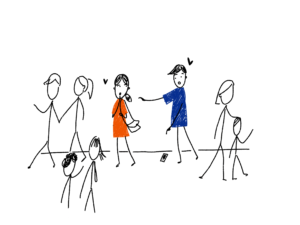
My husband has been abusive towards me for years. I didn’t want to leave because he’s the only person who understands what it’s like living with mental illness. And how hard it can be sometimes. But now that our children are old enough, we took the decision that we need some space from each other. So they don’t have to suffer in the middle.
I’ve been going to therapy and I’m starting a DBT group next week. It’s been hard, but I know it’ll be worth it in the end. Getting out of an unhappy relationship is never easy, but some people can help you through it. You’re not alone.
Movies And Books
Many movies and books deal with unhappy relationships. If you’re looking for something to read or watch that might help you understand your situation better, or just give you some hope, here are a few suggestions:
- The Girl on the Train by Paula Hawkins
- Tuesdays with Morrie by Mitch Albom
- Leaves of Grass by Walt Whitman (1855)
- How to Stay in a Relationship During COVID-19: Tips for Couples
- What Makes A Good Relationship? How To Know When It’s Time For Help.
- The Five Love Languages: The Secret to Love that Lasts by Gary Chapman
- Erin Brockovich directed by Steven Soderbergh and starring Julia Roberts, Albert Finney, Aaron Eckhart (2000)
Conclusion
Getting out of an unhappy relationship can be tough, but it’s not impossible. There are a lot of resources available to help you, including support groups, counseling, and legal advice. You’re not alone, and things will get better if you reach out for help. Don’t be afraid to ask for help – it’s the first step on the road to recovery.
A Word From Therapy Mantra
Your mental health — Your psychological, emotional, and social well-being — has an impact on every aspect of your life. Positive mental health essentially allows you to effectively deal with life’s everyday challenges.
At TherapyMantra, we have a team of therapists who provide affordable online therapy to assist you with issues such as depression, anxiety, stress, workplace Issues, addiction, relationship, OCD, LGBTQ, and PTSD. You can book a free therapy or download our free Android or iOS app.
